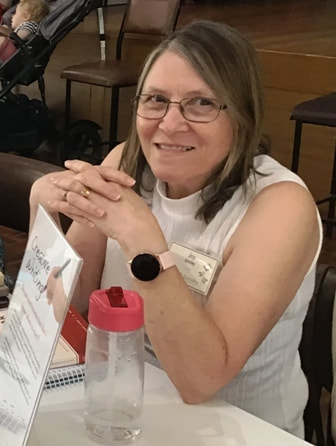Everyone enjoyed the film, although some did not think it was worth a second viewing. It is loosely based on the life of Melita Norwood, a Cold War Spy. It was originally a book by Jennie Rooney who took Melita Norwood’s life story and turned it into a spy novel of the Cold War. A statement made by Norwood that she hoped her actions would help "Russia to keep abreast of Britain, America and Germany" was slightly reflected at the end of the film, although perhaps not quite the same intent. Addressing the media Joan Stanley said that her actions had been influenced by the Hiroshima nuclear bomb and her desire to keep the major countries equal and so help keep peace in the world. This is perhaps the closest the film comes the real life of Melita Norwood.
The film was more about the people than being a spy film which made it more enjoyable than had been expected. The story hung together well with perhaps one exception where at the end Joan’s son, who had previously rejected his mother, suddenly came out in her support. The performances by the key characters were solid, with Judi Dench performing strongly in her role as the older Joan Stanley. We were left wanting to know more of the story as to how Joan came back to England as the story (not the real life Melita) had her migrating to Australia with her husband.
We went on to discuss the issue around seeing films either based on real life or on books. It was generally agreed that seeing a film when knowing the real story can detract from enjoyment as there is always a tendency to compare the film with previous knowledge.
Our film for discussion at the 11 September August class is a Late Night, (with Emma Thompson,) which screens at BPACC between 16 to 23 August.
Joy Shirley


